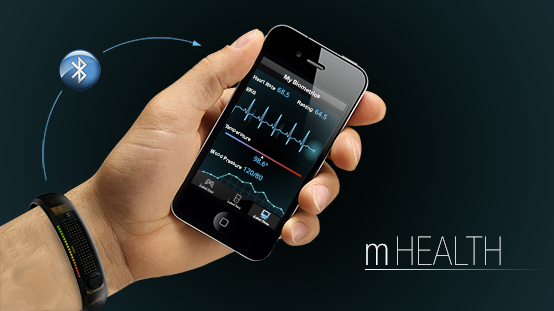
With growing per capita healthcare expenditure both in developed and advanced developing countries, the mobile healthcare market is projected to reach $58.8 billion by 2020, at a CAGR (compound annual growth rate) of 32.3 per cent from 2013 to 2020, according to a report by Allied Market Research.
The report, titled ‘mHealth Market (Devices, Applications, Services and Therapeutics) — Global Mobile Healthcare Industry Size, Analysis, Share, Growth, Trends and Forecast, 2012–2020’, observed that the global mHealth market was valued at $6.7 billion in 2012 and is estimated to reach $8.3 billion by the end of 2013.
“Per capita expenditure on healthcare in developed economies is increasing at a faster rate than inflation and income levels, chiefly due to ageing population and chronic diseases which are lifestyle driven,” note Allied Market Research analysts James Franco and Yojana Jeevane. “However, there has not been corresponding improvement in the quality of healthcare services delivered, especially in developing regions. Additionally, developing economies are even struggling to provide healthcare access at every level to their people.”
On contrary, ubiquitous access of smart mobile devices globally has enabled diagnostic and monitoring devices to render seamless healthcare services. Thus, this market is expected to grow at a significant pace in the next seven years. This projection is backed by the fact such as due to technological advancement integration of wireless technology with the portable healthcare devices is feasible, increasing incidences of lifestyle diseases, cost and convenience factors, government initiatives, affordability of smartphones.
However, weak reimbursement policies, lower adoption due to lack of accuracy and technology infancy and uncertainty in the government regulations is expected to hinder the growth rate. Moreover, untapped markets in developing economies provide a lot of growth opportunities for this market due to increase in adoption of mHealth services to control the spread of communicable as well as non-communicable diseases. Such challenges can be very well taken by adoption of mHealth devices and services as they work irrespective of location and skilled professionals. The only mandatory requirement is the mobile access and a smartphone.
This report segments the global mHealth Market on the basis of devices, services, stakeholders, and therapeutic areas. The global mHealth devices market is forecast to reach market value of over $1.5 billion in 2013 from $0.8 billion in 2011. The contributory factors for this growth is high revenue generated from blood glucose meters, cardiac monitors and BP monitors in descending order. The services market is projected to grow over $6 billion by 2013 from 2011 market values of $4 billion mainly due to increase in revenues generated from monitoring and diagnostic services. In stakeholders market study mobile operators as well as device vendors will account for more than 75 per cent of the overall market share by 2020.
The geography market assessment signifies that Europe along with North America will account for about 55 per cent of the overall market revenue in 2013 and may reduce with growing demand in Asia Pacific region. The study also offers an updated review on the present major market player such as manufacturers of mobile medical devices, and mobile network providers; which also includes description of relevant recent developments activities. Companies profiled in the report includes Philips Healthcare, Omron HealthCare, Bayer Healthcare, LifeWatch, Cardionet, Masimo Corporation, Sanofie, Boston Scientific, AT&T, and Johnson & Johnson.


